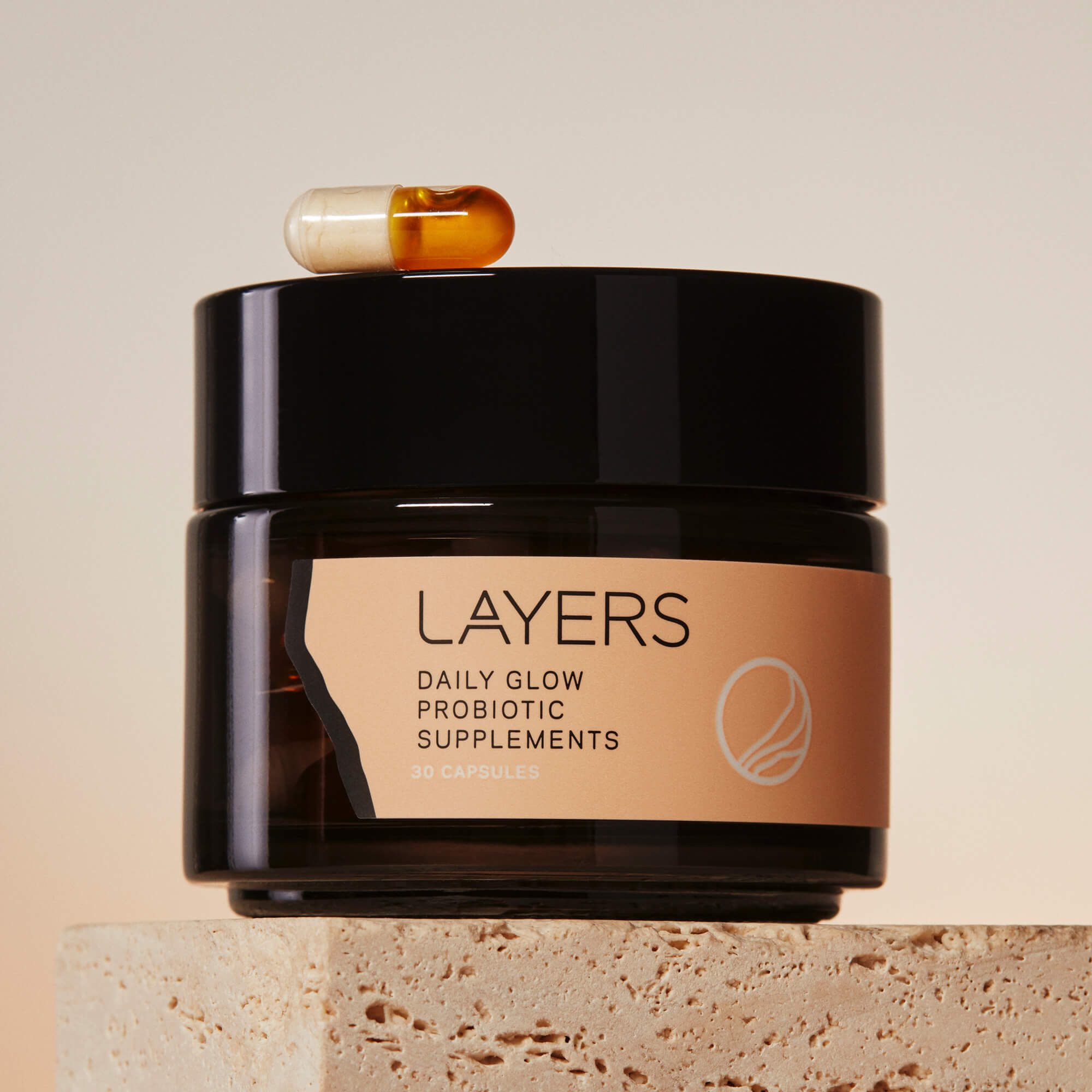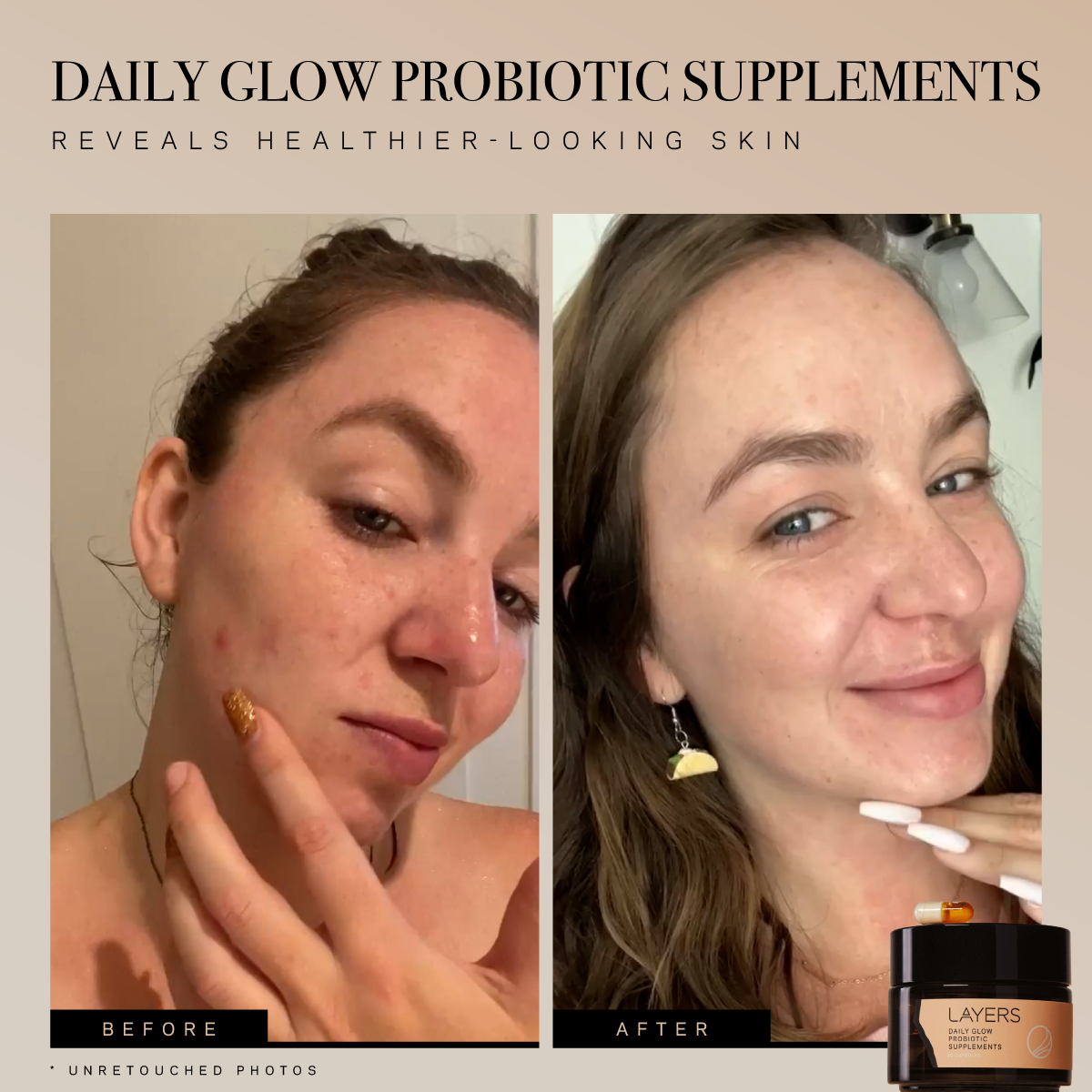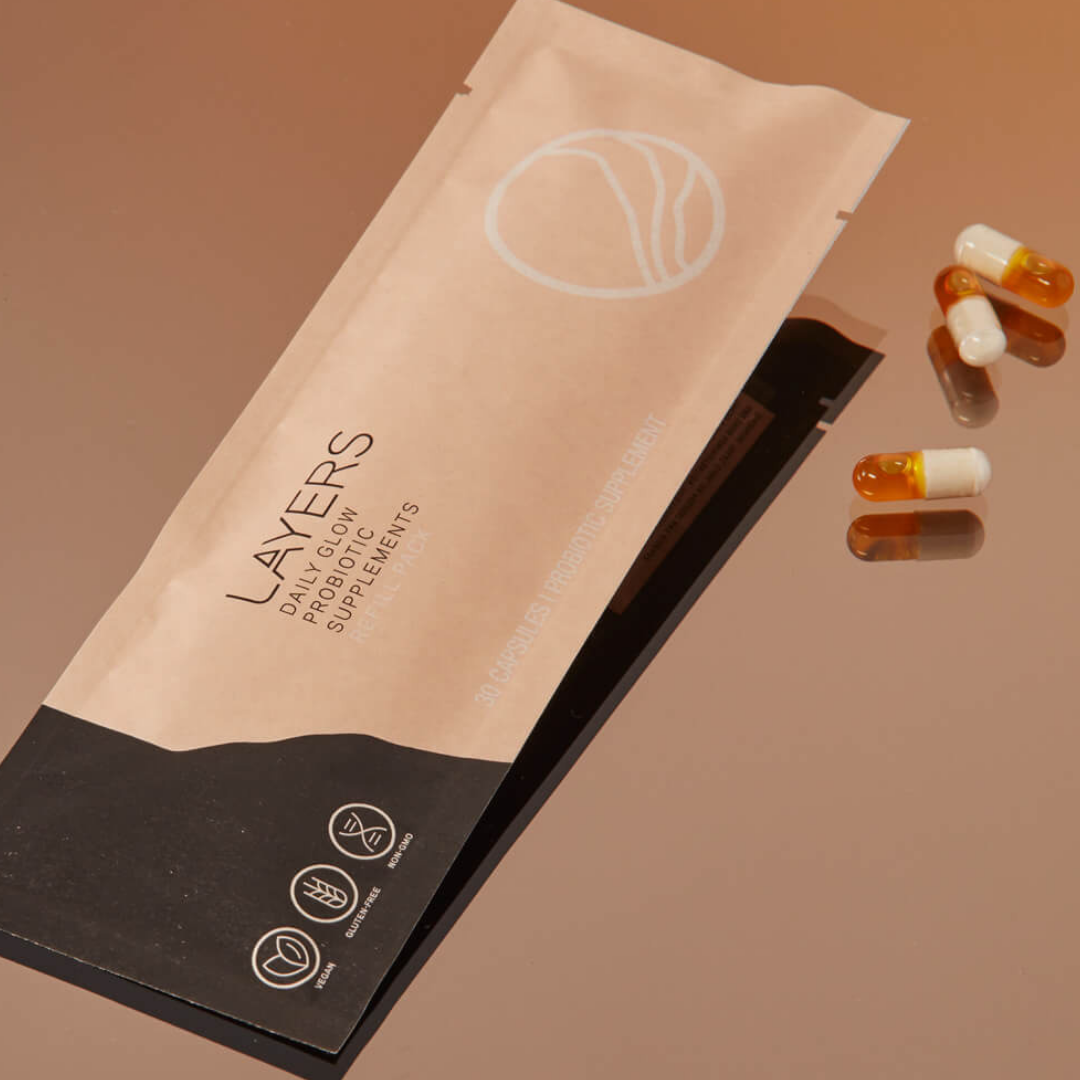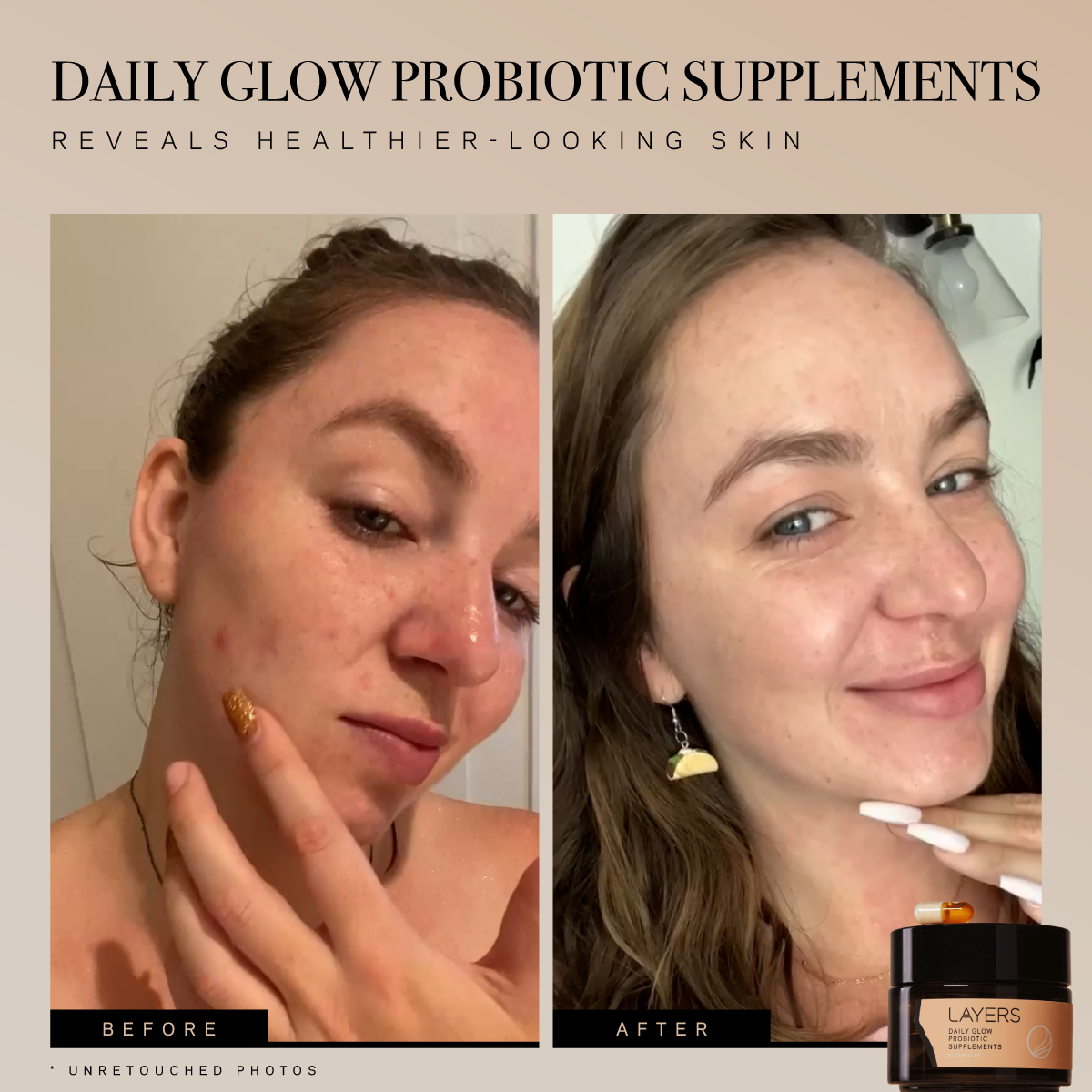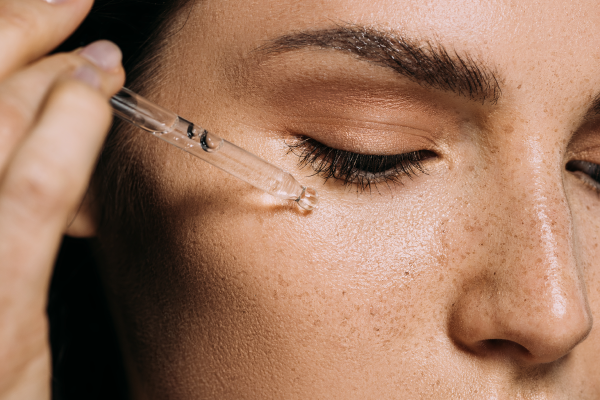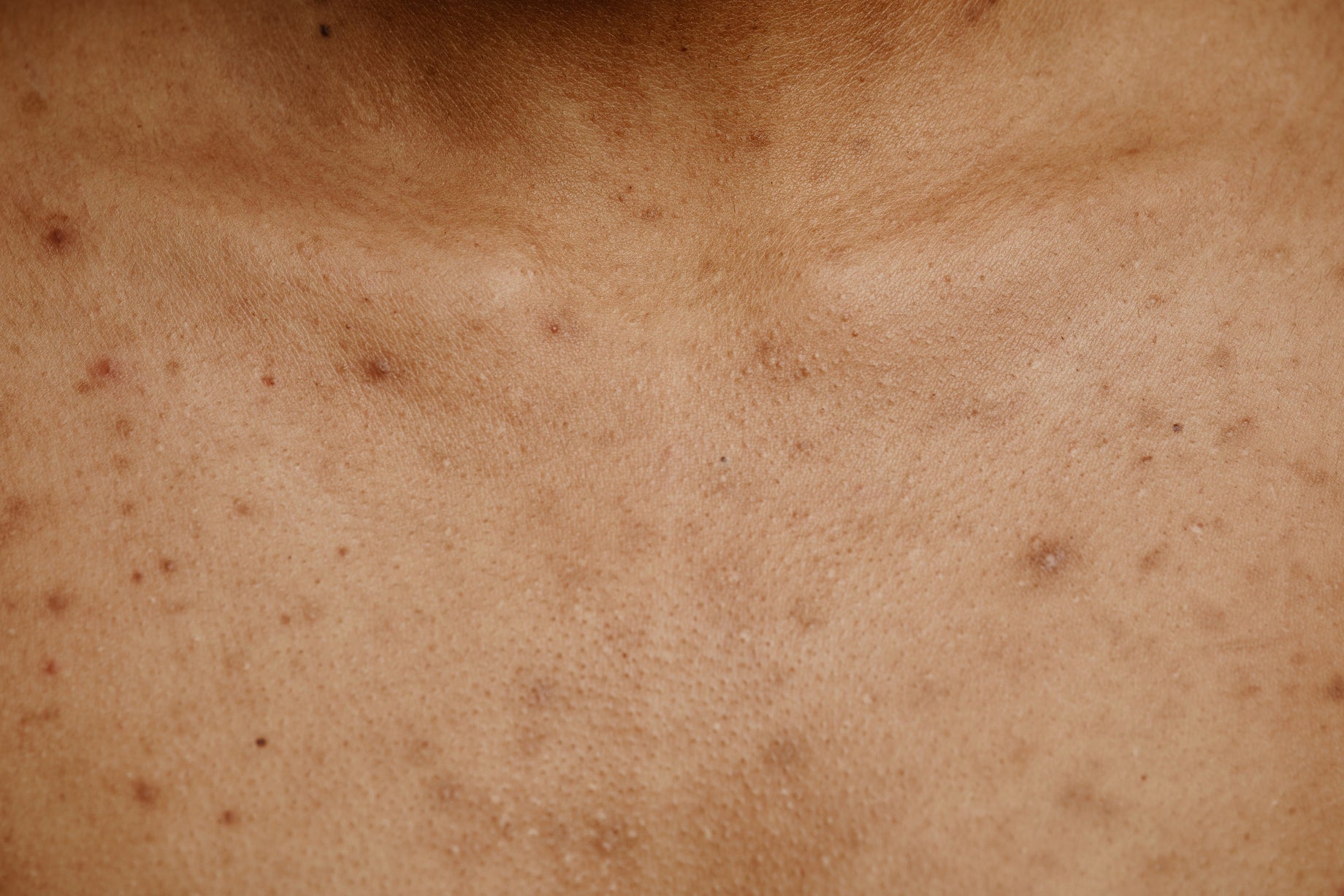There’s an invisible force that drives your behavior, your digestion, and your skin. Learn how your microbiome affects who you are and how you feel.
Once you learn that you have a microbiome and how important it is, you’ll wonder why we weren’t learning about it in middle school biology class. Our microbiome plays a huge role in our health and wellbeing. Everything from our mood, anxiety levels, digestion, and of course, our skin health, are all regulated by the overall physical state of the microbiome.
WHAT IS THE MICROBIOME?
To put it simply, it’s a community of microorganisms that collectively creates a sort of fingerprint. Everyone’s microbiota community is unique. We all are born with a different mix of bacteria the moment we’re born. This bodily shield is made up of between 300-500 various bacteria that harbor about 2 million genes. These are paired with other organisms like fungi and different types of viruses.
A part of your microbiome is based on your mother’s microbiota. Other determining factors include where you live and the amount of pollution you’re exposed to. The microbiota that thrive and are useful in a dry climate are different from those you might possess in a more tropical, humid environment. Diet and lifestyle are significant factors, too. The healthier your diet and the more regular exercise you participate in, the healthier your microbiome will be.
HOW DOES MY MICROBIOME AFFECT ME?
Oh, let us count the ways! The microbiome has a truly unbelievable level of control over your body and your wellbeing. Here are a few of the biggest reasons a balanced microbiome matters.
Digestion:
The microbes living in your gut may very well have the biggest impact on your overall well-being. Your digestion affects everything from your metabolism to your mood to your immune system. Most of these microscopic bacteria live in your intestines and colon, lining your entire digestive system. When they are out of balance, the effects run large and wide. Gut imbalances have been shown to lead to inflammatory bowel disease, irritable bowel syndrome, obesity, type 2 diabetes, allergies, asthma, and skin conditions like dermatitis.
Disease:
We know that inflammatory bowel diseases, including Crohn’s disease and ulcerative colitis, occur in imbalanced gut environments. People suffering from these conditions are believed to have lower levels of the types of gut bacteria that bring anti-inflammatory relief and help prevent inflammation in the first place. So a balanced microbiome is important in these cases.
There’s also a gut connection to diabetes, which studies have shown can be modified by dietary changes. Diabetes is the number one cause of something called gastroparesis, a digestive condition that delays the speed at which your stomach empties the food you’ve consumed. Obesity, rheumatoid arthritis, and colon cancer are also believed to have a gut-brain correlation.
Metabolism:
Your gut microbiome also affects your body’s metabolism. It determines things like how many calories you get from food and what kinds of nutrients you draw from it. Too much gut bacteria can cause you to turn fiber into fatty acids, which then deposits fat into your liver. This is called metabolic syndrome and can lead to type 2 diabetes, heart disease, and obesity.
Mood:
Your gut is full of nerve endings that communicate back and forth with your brain. Studies show that the microbiota in your gut affects your mood, and your mood affects your microbiota. This system of communication is called the “gut-brain axis.” Gut bacteria are currently being studied in order to identify the specific strains that link your gut microbiome with disorders of the central nervous system. This means that science has shown that depression and anxiety have direct connections to our gut health.
Skin:
The condition of our skin is also determined by our microbiome. And the wild truth is that we’re not the only species that knows it. In a study that took place from 2009 to 2022, scientists observed dolphins routinely nourishing their skin. Bottle-nosed dolphins in Egypt’s Northern Red Sea were seen regularly brushing their bodies against a specific type of sea coral. Lab tests revealed that the coral had antibacterial, anti-parasitic, and antibiotic properties. Additionally, it contained a type of estrogen that helped soften skin. Similar behaviors have also been observed with killer whales and beluga whales.
Thankfully for humans, we don’t have to go deep-sea diving in order to get these healing, moisturizing, and microbiome balancing benefits. Probiotics have made it easy to incorporate scientifically proven microbiome skincare into your daily routine. You can learn more about how it works in our blog post, Microbiome Skincare 101, and check out our probiotic skincare line here.
HOW TO GET AND MAINTAIN A HEALTHY MICROBIOME
A healthy microbiome is a diverse community of microorganisms. And food is the fastest (and most fun!) way to introduce more probiotic diversity. So your diet is a great place to start if you suspect your microbiome could use a little more support.
In Foods to eat (and avoid) for Glowing Skin, we’ve compiled a list to help you identify what’s helping and potentially harming your gut. A diet rich in fermented foods will make a huge difference in your gut bacteria diversity. In this blog post, we share 5 recipes for fermented foods with simple ingredients that you can make at home.
Cutting out or limiting sugary foods is also important because bad bacteria feed on sugar. So cut back where you can (but please do indulge in your birthday cake…none of us are saints!) Oral probiotics are another good way to make sure you’re getting the “good bugs” into your belly. Our Daily Glow Probiotic Supplements are one-a-day capsules that are scientifically proven to aid digestion, as well as increase skin hydration, elasticity, and smoothness.
Another important element to keep your microbiome in check is to move your body. Exercise in any way, shape, or form helps your body and your gut. Studies show that exercise increases microbiota diversity and offers protective effects that can reduce the risk of colon cancer, diverticulosis, and inflammatory bowel disease.
The importance of the microbiome comes only when we understand the monumental role it plays in the state of our overall health. It’s not just about our skin and our digestion; it’s also about mental health. It offers us opportunities for understanding disease management and prevention. And thankfully, the science only continues to grow as we’re recognizing the importance of our very own, highly personalized, invisible protector.

